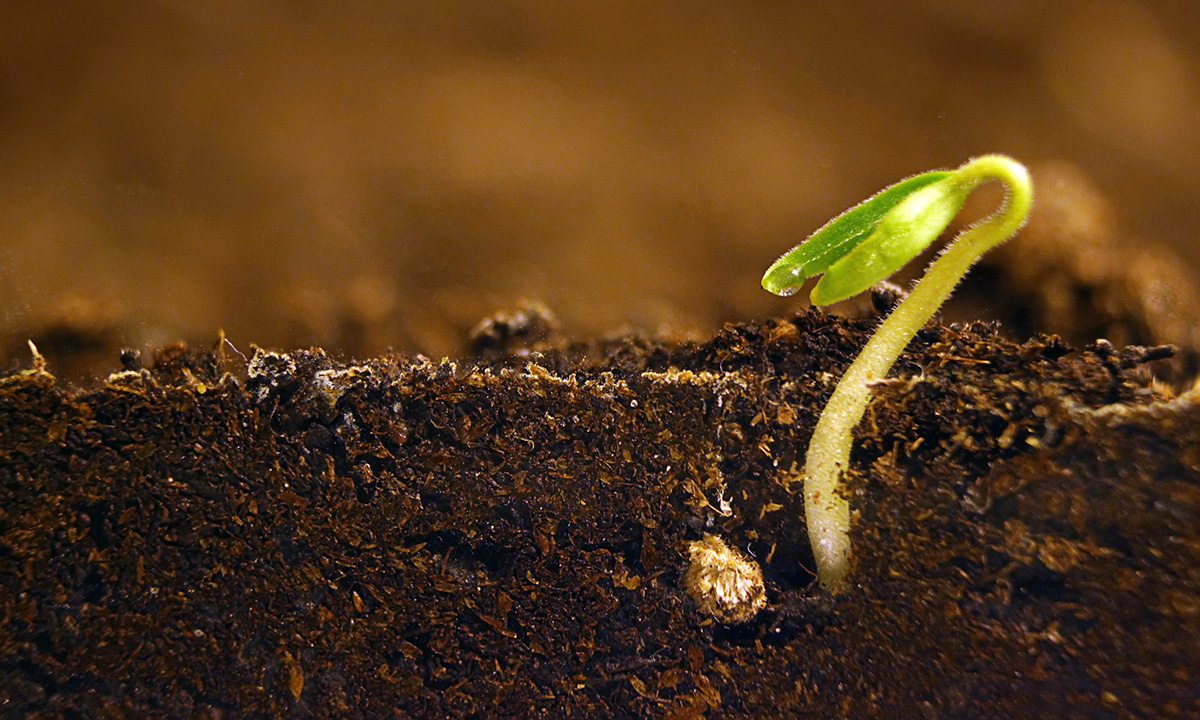
It is the season of seeds sprouting, so it is a good time to consider the theology of seeds.
By Dr. Dylan Thompson
I just started some sunflower seeds indoors. They are small hard seeds. When you plant them, and water them, and leave them in the sun, nothing happens for a while. Then they sprout. At this point, the small children and the scientists ask: Why did the seeds sprout?
Seed sprouting is due to highly complicated biochemical signaling inside the seed. When the temperature and the water content are right, these signaling pathways activate the part of the seed that is actually alive (rather than initial nutrients which is the other part of the seed … approximately). When the signaling pathways are flipped “on,” then the seed sprouts.
The scientist then asks: Why does the temperature have to be high enough for the seed to sprout? The answer to that question is almost impossibly complex. When I first wrote this paragraph I focused on thermodynamics, which wasn’t wrong—but was shockingly incomplete. In thermodynamics we are concerned chiefly with the “Free Energy” associated with a process as defined as ΔG by the following equation: ΔG = ΔH-TΔS. Since “T” is temperature, there is a temperature effect involved. But the process also has to do with numerous kinetic factors, such as the kinetics of the diffusion of water through the dry seed as it moistens. This would be described by an equation like:

… where k is the rate constant (bigger is faster) and Ea is the activation energy and T is, again, temperature. As the temperature increases there is more energy to overcome activation barriers so that the processes occur faster. In summary, the scientific answer to the question could fill a textbook.
But why?
Since scientists are often similar to somewhat annoying children, we ask again, why? Why do these thermodynamic and kinetic processes result in a growing plant? The more you study the processes involved, the more you will find that they are almost infinitely complex. There is a danger of assuming an infinite regression of “why?” questions. But ultimately the questioner should accept the following answer to the last “why?” This answer is akin to accidently wandering onto Holy ground. For the answer that ends the incessant “why?” is that God, in his benevolent mercy, and abiding goodness, has decreed that there will be seedtime and harvest as long as this earth will endure (Gen 8:22). In His Grace, He causes the seed to sprout in its season—that the creatures of his creation will not starve.
Importantly, the answer above that a scientist ought to find is the exact same answer that a theologian ought to start with. The scientist has certainly taken the scenic route, but has gained something on that path: awe and wonder at the magnificence of God’s creation. This awe and wonder which is founded on things that we can understand, give us a sense of the immensity of the growth of the seed of Faith which comes by hearing the Word itself (Rom 10:17). For we are taught that this Word is like a seed sown which sprouts and grows into faith, salvation, and every good work through God’s same benevolent Mercy and abiding Goodness (Mark 4:20).
Why do the seeds sprout? Because God is merciful, and loves his creation. Amen.

Dr. Dylan J. Thompson is an associate professor of chemistry at Concordia University Wisconsin. He has a special interest in discussing faith and science and has been teaching at CUW since obtaining his Ph.D. from Purdue university in 2014.
Want in?
Concordia University Wisconsin is a Lutheran higher education community committed to helping students develop in mind, body, and spirit for service to Christ in the Church and the world. In the Department of Physical Sciences, we’ll lead you to discover the complex details of God’s creation. Chemistry, biochemistry, pharmaceutical sciences, and physics are all housed in the Department of Physical Sciences, where our aim is to help you develop a thorough understanding of the world around you. Through rigorous coursework in the physical sciences, we will help prepare you for vocations in research, education, graduate studies, and much more.